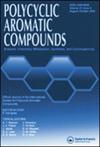Comparative Analysis of Reverse Degree and Entropy Topological Indices for Drug Molecules in Blood Cancer Treatment through QSPR Regression Models
IF 2.4
3区 化学
Q2 CHEMISTRY, ORGANIC
引用次数: 0
Abstract
The topological indices provide quantitative structural characteristics of drug molecules that can be utilized to predict or establish correlations with the biological activity, physicochemical properties, and toxicity of the molecules. Such studies play a crucial role in the initial stages of drug development by aiding in the identification and optimization of potential drug candidates and providing cost-effective techniques for experimental studies. Cancer, a multifaceted disease, can originate in any part of the body due to various factors, including genetic mutations, environmental toxins, and lifestyle choices. Blood cancer, encompassing malignancies affecting the blood, bone marrow, and lymphatic systems, is the focus of this research paper. The current study investigates a comprehensive set of drugs employed in blood cancer treatment, including clofarabine, mercaptopurine, olutasidenib, glasdegib, gliteritinib, zanubrutinib, chlorambucil, ibrutinib, bosutinib, hydroxyurea, cyclophosphamide, doxorubicin, daunorubicin, ivosidenib, prednisone, busulfan, omacetaxine mepesuccinate, and asciminib. By conducting a thorough analysis of these drugs, we acquire valuable insights into their molecular properties, which are crucial for predicting their behavior and efficacy in blood cancer treatment. We have devised QSPR models by leveraging the reverse degree and entropy topological indices. Our proposed QSPR models are compared with existing degree-based models, emphasizing the superior effectiveness of our approach.
通过 QSPR 回归模型比较分析血癌治疗药物分子的反向度和熵拓扑指标
拓扑指数提供了药物分子的定量结构特征,可用于预测或建立药物分子与生物活性、理化性质和毒性之间的相关性。此类研究在药物开发的初始阶段发挥着至关重要的作用,有助于识别和优化潜在的候选药物,并为实验研究提供具有成本效益的技术。癌症是一种多发性疾病,可因基因突变、环境毒素和生活方式选择等各种因素而起源于身体的任何部位。血癌包括影响血液、骨髓和淋巴系统的恶性肿瘤,是本研究论文的重点。本研究调查了用于血癌治疗的一整套药物,包括氯法拉滨、巯嘌呤、奥鲁替尼、格拉斯替吉、格列替尼、扎鲁替尼、氯布嘧啶、伊布替尼、博苏替尼、羟基脲、环磷酰胺、多柔比星、达乌诺比星、伊维替尼、泼尼松、丁螺环素、甲磺酸奥美沙星和阿西米尼。通过对这些药物进行全面分析,我们对其分子特性有了宝贵的了解,这对预测它们在血癌治疗中的行为和疗效至关重要。我们利用反向度和熵拓扑指数设计了 QSPR 模型。我们提出的 QSPR 模型与现有的基于度数的模型进行了比较,强调了我们方法的优越性。
本文章由计算机程序翻译,如有差异,请以英文原文为准。
求助全文
约1分钟内获得全文
求助全文
来源期刊

Polycyclic Aromatic Compounds
化学-有机化学
CiteScore
3.70
自引率
20.80%
发文量
412
审稿时长
3 months
期刊介绍:
The purpose of Polycyclic Aromatic Compounds is to provide an international and interdisciplinary forum for all aspects of research related to polycyclic aromatic compounds (PAC). Topics range from fundamental research in chemistry (including synthetic and theoretical chemistry) and physics (including astrophysics), as well as thermodynamics, spectroscopy, analytical methods, and biology to applied studies in environmental science, biochemistry, toxicology, and industry. Polycyclic Aromatic Compounds has an outstanding Editorial Board and offers a rapid and efficient peer review process, as well as a flexible open access policy.
 求助内容:
求助内容: 应助结果提醒方式:
应助结果提醒方式:


